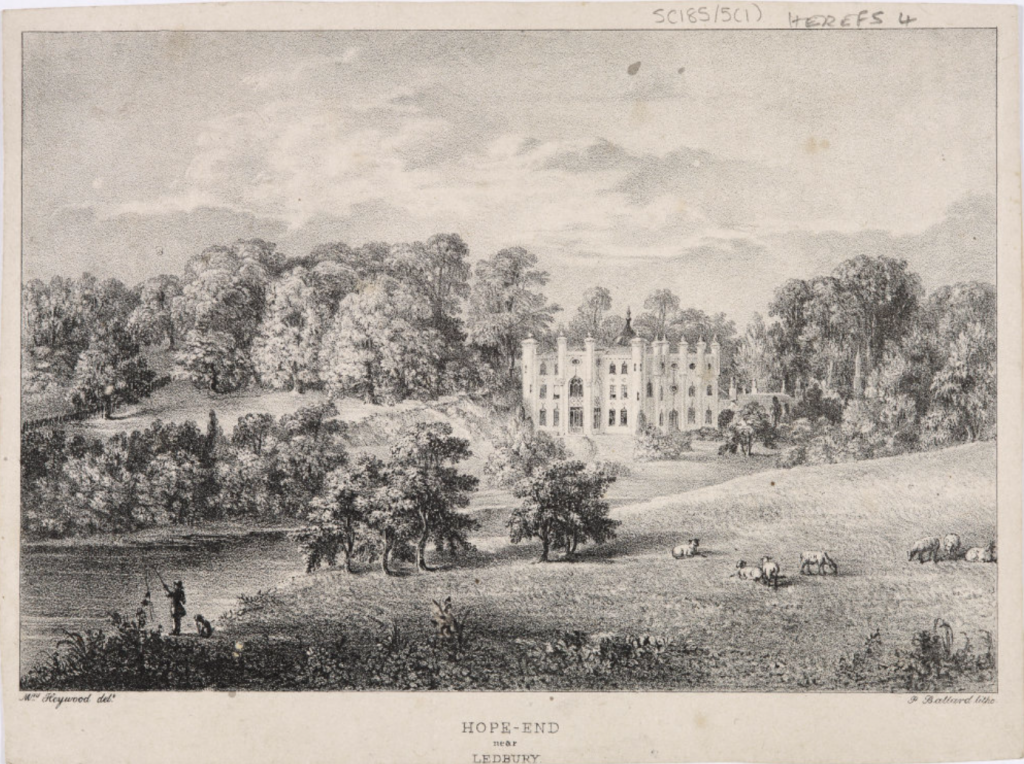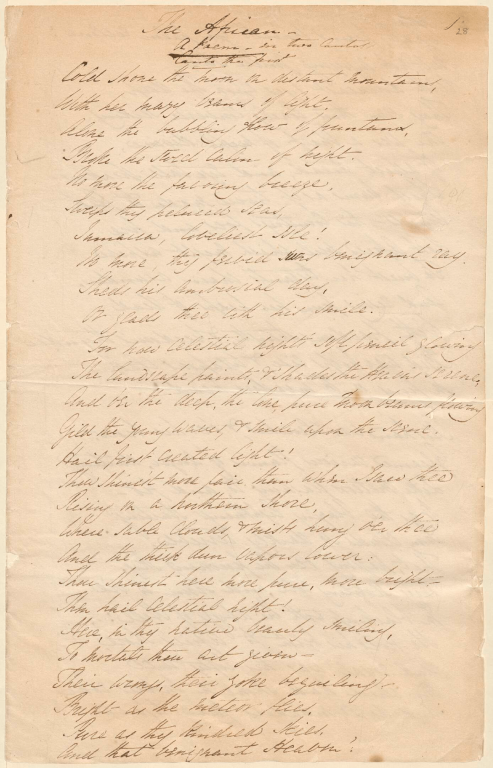Hope End (Childhood Home of EBB)
Elizabeth Barret Browning grew up on the Hope End Estate in Herefordshire, where her family moved in 1809. They remained there until 1832, when financial difficulties arising from the Baptist War, a slave rebellion that impacted the economic stability of the Barretts' Jamaican plantations, compelled them to relocate to Sidmouth, Devon, in the southeast of England.
Hope End Mansion. Watercolour and pencil by EBB’s sister Arabella Moulton-Barrett, 1831 Source: Elizabeth Barrett Browning: Selected Early Works, ed. Beverly Taylor et. al., xvii
Source: Elizabeth Barrett Browning: Selected Early Works, ed. Beverly Taylor et. al., xvii
Coordinates
Latitude: 52.069970000000
Longitude: -2.406616000000
Longitude: -2.406616000000


